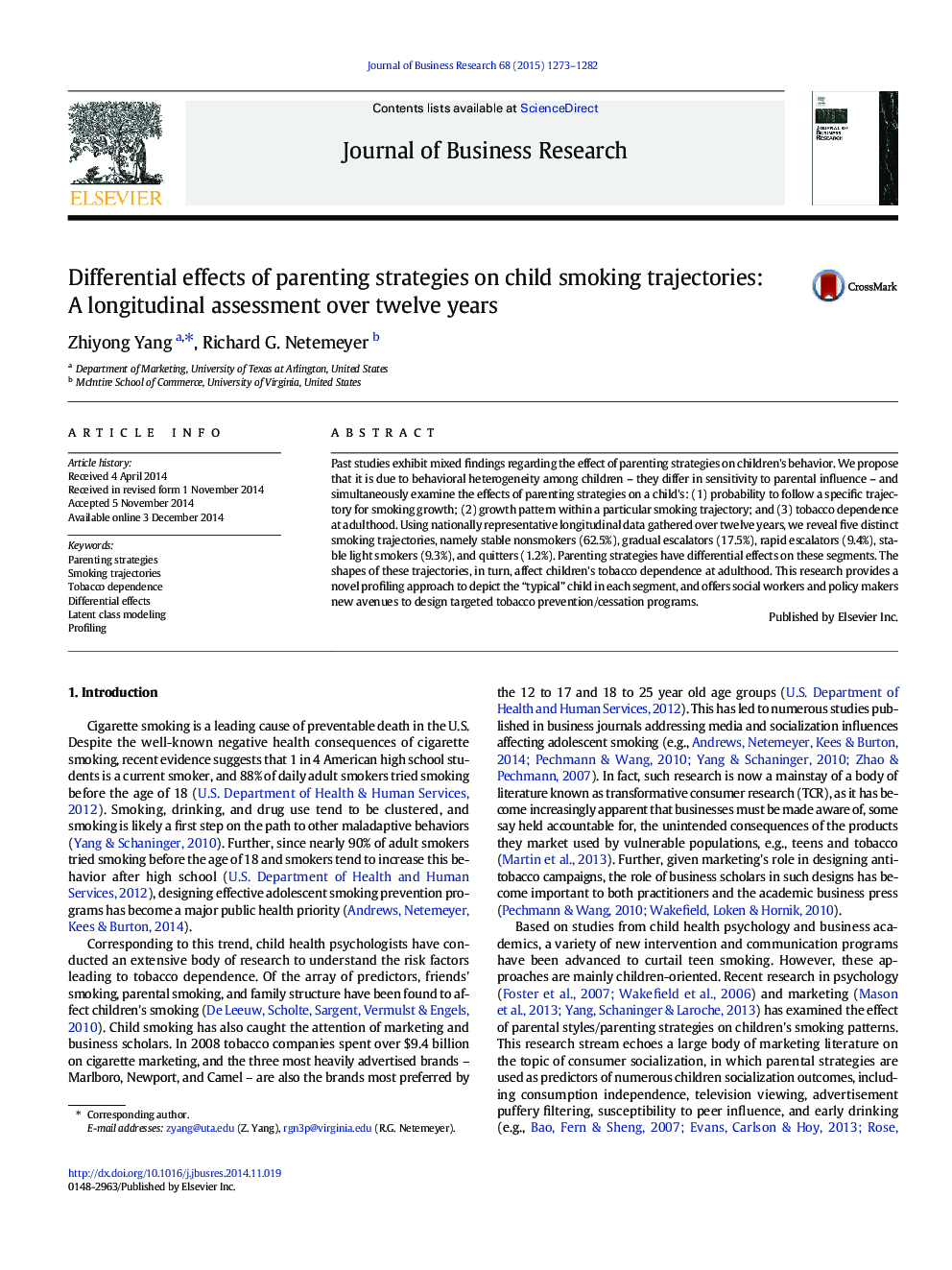| Article ID | Journal | Published Year | Pages | File Type |
|---|---|---|---|---|
| 1017341 | Journal of Business Research | 2015 | 10 Pages |
Past studies exhibit mixed findings regarding the effect of parenting strategies on children's behavior. We propose that it is due to behavioral heterogeneity among children – they differ in sensitivity to parental influence – and simultaneously examine the effects of parenting strategies on a child's: (1) probability to follow a specific trajectory for smoking growth; (2) growth pattern within a particular smoking trajectory; and (3) tobacco dependence at adulthood. Using nationally representative longitudinal data gathered over twelve years, we reveal five distinct smoking trajectories, namely stable nonsmokers (62.5%), gradual escalators (17.5%), rapid escalators (9.4%), stable light smokers (9.3%), and quitters (1.2%). Parenting strategies have differential effects on these segments. The shapes of these trajectories, in turn, affect children's tobacco dependence at adulthood. This research provides a novel profiling approach to depict the “typical” child in each segment, and offers social workers and policy makers new avenues to design targeted tobacco prevention/cessation programs.
